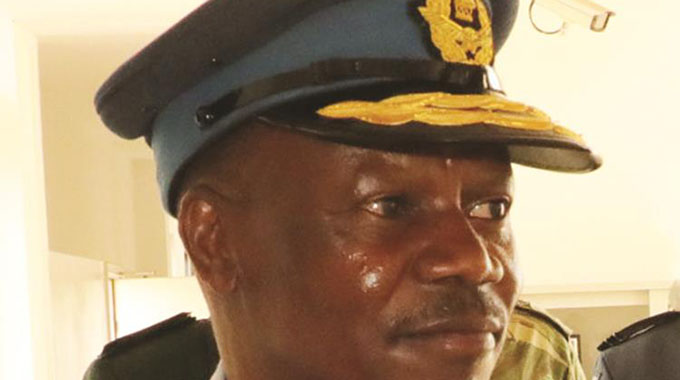MDC-A a political pact: Komichi

Fidelis Munyoro Chief Reporter
Reinstated MDC-T national chairman Mr Morgan Komichi has said MDC-Alliance was an electoral bloc formed among seven opposition political parties for the 2018 elections with no legal standing to recall legislators or expel any members of the parties’ acquiescent to the pact.
Mr Komichi was responding to social media reports saying MDC-Alliance had fired him and recalled the party secretary-general Mr Douglas Mwonzora, for taking sides with reinstated deputy party president Dr Thokhozani Khupe.
He said according to the pact of the political grouping, each party retained its identity and independence after the 2018 elections.
This followed a recent Supreme Court ruling that declared Dr Khupe the interim leader of the opposition and that the party should go back to the 2014 structure before calling for a congress within 90 days.
Mr Komichi yesterday accused the MDC-Alliance of disinformation.
MDC-Alliance is made up of parties, among them MDC-T then led by the late Mr Morgan Tsvangirai, People’s Democratic Party (PDP) led by Mr Tendai Biti, MDC-N under the leadership of Professor Welshman Ncube and Zimbabwe People First (ZimPF) led by Mr Agrippa Mutambara.
“We are aware that the party with members of Parliament is MDC-T not the MDC-Alliance,” said Mr Komichi.
He said there “is never evidence that MDC-Alliance was declared a political party”.
He reiterated that the congress held by MDC-Alliance after the elections was actually an MDC-T congress. The congress, he said, has since been declared a nullity, according to the Supreme Court ruling.
Mr Komichi was the party’s national chairman at the time the pact between the parties was knitted and was involved in the allocation of parliamentary seats to the parties in the bloc.
“These people have no power whatsoever to fire us from the party,” he said.
“When the parties listed were allocated seats, the agreement was clear that each party will, after the elections, maintain its status quo.”
In this regard, Mr Komichi said MDC-T would not change, unlike the MDC-Alliance.
Speaker of Parliament Advocate Jacob Mudenda refused to comment on the matter with regards to Members of Parliament from the parties saying: “I have no comment at all, thank you.’’
Analysts concurred with Komichi saying as per the Supreme Court ruling, all matters to do with the MDC-T, which is part of the aggregated MDC-Alliance were now being handled by the reinstated MDC-T secretary-general, Mr Mwonzora.
Political analyst Mr Collen Mharadzano said it would be legally naive for any rational legal mind to ignore that fundamental fact of law.
“The only legal entity which has the legal gravitas to hire and fire is the now MDC-T faction headed by Mr Mwonzora, Komichi and Dr Khupe. Any other purported interpretation is legally void,” said Mr Mharadzano.
“The writing is on the wall, an extraordinary congress has to be done within the prescribed period. It’s only (Dr) Khupe and group who can recall and fire as and when they see fit.”
Former MDC-T legislator and legal expert Mr Obert Gutu said all members of Parliament and councillors who were elected into office on July 30, 2018 were elected under the banner of the MDC-T, which was one of the seven political parties that had adopted the umbrella MDC-Alliance.
“It is very important to note that the MDC-Alliance, as at the time the July 30, 2018 harmonised elections were held, was a loose coalition of seven political parties, each of which retained and maintained its separate and distinct identity,” said Mr Gutu.
“Thus, the MDC-Alliance has got absolutely no legal basis to recall Douglas Mwonzora from the Senate.”
He said it was important to understand the full input and legal thrust of Section 129 (k) of the Constitution of Zimbabwe to appreciate that it is now the MDC-T, under the leadership of acting president Dr Khupe, that possessed full legal authority to recall any errant legislators and councillors.
The provisions of Sections 129(1)(k) stipulate that the seat of a Member of Parliament becomes vacant if the Member has ceased to belong to the political party of which he or she was a member when elected to Parliament and the political party concerned, by written notice to the Speaker or the President of the Senate, as the case maybe, has declared that the Member has ceased to belong to it.
Section 129(1)(l) makes a provision that the seat of a Member of Parliament becomes vacant if the Member, not having been a member of a political party when he or she was elected to Parliament, becomes a member of a political party.







Comments